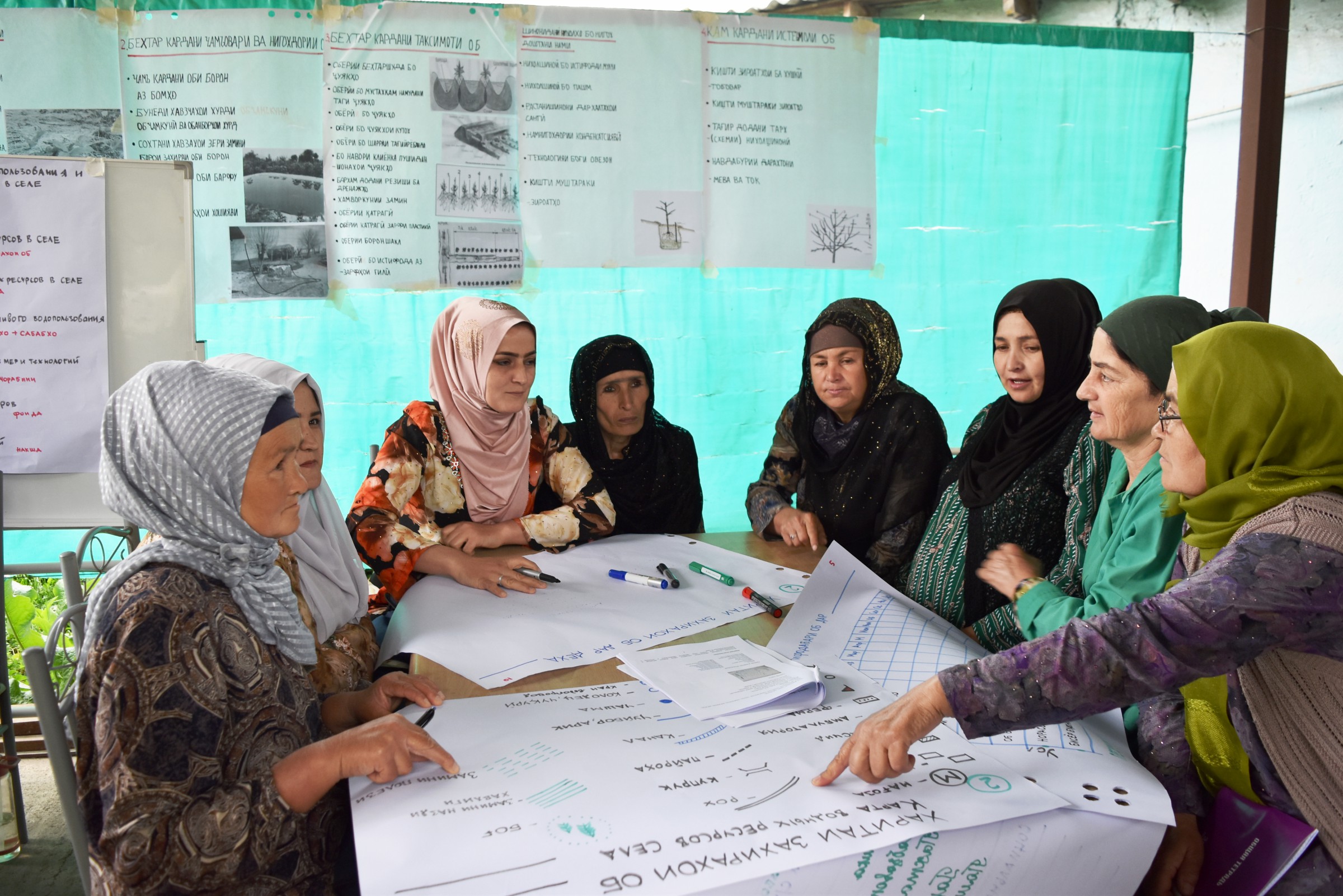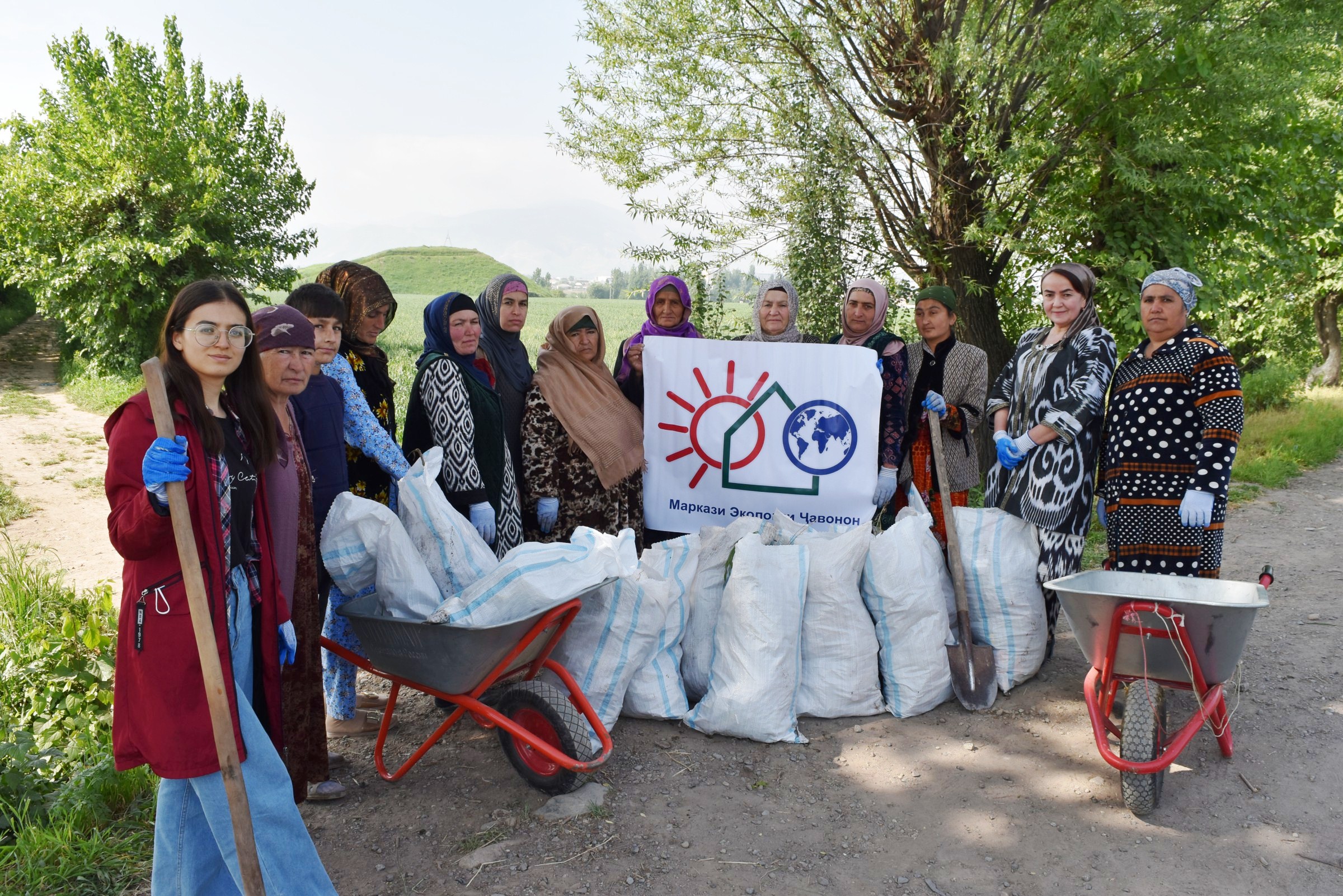Building Climate Resilience in Tajikistan: Empowering Communities Through Local Adaptation
Organization: Youth Ecological Center (YEC)
2024 LOCAL ADAPTATION CHAMPIONS AWARD NOMINEE
In Tajikistan, climate change is intensifying the challenges faced by rural communities reliant on agriculture. Droughts, extreme weather events, and water shortages are directly impacting farming and threatening livelihoods, particularly in areas like the Kafirnigan River Valley, home to over 20,000 people. These farming communities, producing essential crops such as cotton, wheat, and vegetables, are struggling as rising temperatures and inconsistent rainfall contribute to soil degradation. Female-headed households are especially affected, as male labor migration leaves women to manage both their homes and farms under increasing climate pressures.
Empowering Women for Climate Resilience
The Youth Ecological Center (YEC), established in 1979, has been addressing these challenges through grassroots climate adaptation strategies. Central to YEC’s efforts is empowering rural women, who make up 75% of the population in some areas, by involving them in decision-making and resource management. One of YEC’s key initiatives is the formation of community water groups based on the traditional Tajikistani self-governance institution of “Mahalla”, where women make up 70% of participants. These groups focus on managing water resources more efficiently and implementing water-saving technologies.
“Women are now key decision-makers, leading conservation efforts that benefit their families and communities,” says Nozanin Shoahmadzoda, a leader at YEC. In addition to their role in water management, women are deeply involved in developing Local Adaptation Plans for Action (LAPAs), which prioritize climate risks and introduce scalable, low-cost technologies. This approach ensures that rural women, traditionally excluded from decision-making processes, are now at the forefront of building their communities’ climate resilience.

Community climate risk assessment
Sustainable Solutions for Long-Term Impact
YEC’s climate adaptation initiatives have reached 20,000 people across 5,000 rural households. A major focus is on introducing water-saving technologies like drip irrigation systems, which have reduced water usage while boosting crop yields. These scalable solutions are designed with gender sensitivity in mind, providing direct benefits to women-led households. Moreover, YEC has established Community Saving Funds in five villages, managed by local Mahalla Committees. These funds ensure that communities can continue implementing adaptation plans without relying solely on external donations, promoting long-term sustainability.
YEC’s community-driven approach has empowered rural women and smallholder farmers to take charge of their climate risks. By training local stakeholders in sustainable practices and providing them with the tools to manage adaptation projects, YEC has helped foster resilience and self-reliance.

Adaptation planning
Scaling Success: Building a Climate-Resilient Future
The impact of YEC’s initiatives is evident across the Kafirnigan Valley, where smallholder farmers face increasingly erratic weather patterns, droughts, and soil degradation. By promoting sustainable water management and introducing climate-resilient agricultural practices, YEC has helped these farmers maintain their livelihoods despite the challenges posed by climate change. Furthermore, the organization has created opportunities for women to lead agricultural businesses, providing them with training in sustainable farming techniques and leadership roles within their communities.

Greenhouse with water saving technology
Looking Ahead: Scaling Gender-Responsive Adaptation
As YEC looks to the future, it aims to expand its gender-responsive climate resilience efforts to additional vulnerable regions, including the Gissar Valley. The organization plans to increase its capacity-building workshops and strategic planning sessions for staff and volunteers, ensuring communities have the skills and resources to manage climate risks long-term.
“We want to ensure that communities have the skills and resources to manage climate risks in the long term,” says Shoahmadzoda. “With additional support, we can continue to empower rural women and youth, helping them lead the way in climate adaptation.”
By promoting sustainable water management, empowering rural women, and fostering community-driven adaptation strategies, YEC is paving the way for a more resilient and equitable future in Tajikistan.
